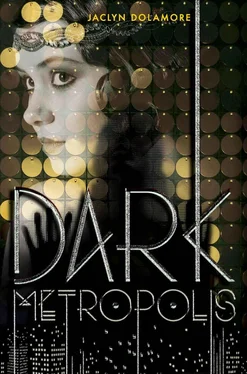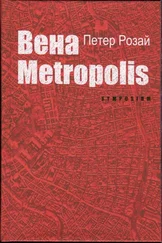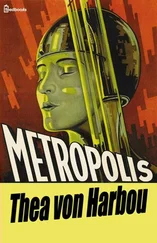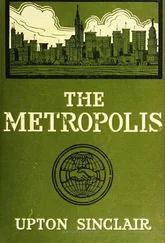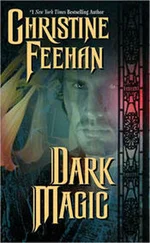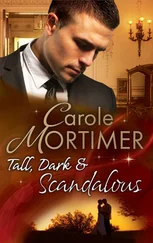When church let out, that was the difficult part, because she had to hurry Mother home without acting too suspiciously. Some of Mother’s friends always said hello and whispered to Thea that her mother didn’t look well and did she need anything?
Father Gruneman approached her before she could escape and clutched her hand. He was getting old, and his skin felt fragile and dry, but he still had a firm grip. “Thea, dear girl! And Mrs. Holder! How are you? Always in a hurry to leave after my sermons, aren’t you?”
“Oh, no.” Thea winced even though she knew he was teasing. “It’s just—”
He didn’t wait for her to come up with an excuse. “It’s all right. I just wondered how you were.”
“I have a hole in my shoe,” Mother said. She spoke matter-of-factly, almost peevishly, like a child. Her voice was too loud.
Thea couldn’t hide her horror. She didn’t know how to pretend this was appropriate. “Mother, it’s all right,” she said hurriedly. “We’ll go to the cobbler tomorrow.” She forced a smile at Father Gruneman. Mother didn’t say anything else. She was looking at the ground, fidgeting.
“I’ve been wanting to speak with you for a while now,” Father Gruneman said. Most of the congregation had filed out around them, the children running excitedly after having sat still all morning.
“Oh—have you seen Henry?” Mother asked, as though she’d just remembered that Father Gruneman had known him.
Father Gruneman shook his head grimly. “Thea…how long has it been like this?”
“It wasn’t always this bad,” Thea said. “She gets a little worse every year.” Every month, almost. She still didn’t want to admit the extent of it.
“Your father had told me they were bound. That was before we had ever heard of bound-sickness. And I’ve noticed lately that she’s…she’s changed. You should have told me.”
“There isn’t much you could have done,” Thea said. “And I try not to talk about it to anyone. I don’t want the government to take her away.”
“You know I’d be the last person to report her sickness to the authorities! Look at how they ‘cured’ poor Mrs. Hart. She used to be such a delight, and now she doesn’t even smile at my jokes.”
“I know you wouldn’t report it, but I’ve gotten used to keeping to myself. Most people don’t understand why my mother ever would have wanted a binding marriage to begin with.”
Marriage-binding had already been considered a backwater custom when Thea’s parents married. They had chosen binding so each would always know where the other was, so her mother could find her father if he ever got lost hunting or traveling, but city people assumed all bound marriages were arranged and forced. And after the war, the sickness started. Rustic women going mad, insisting their husbands were alive even though they had been reported killed—sometimes even when the wives had seen the bodies.
Father Gruneman’s thick white eyebrows furrowed. “I understand, but what a burden it must be. If you ever need some company, you’re always free to come for dinner, you know. You and your mother. Borrow some books, if you’d like.”
“Thank you,” Thea said, feeling guilty. She just didn’t read much, the way she had as a little girl. He probably still thought of her that way, Thea with skinned knees and a book under her arm. “I still have that book of fairy tales you gave me when Father died.”
“I’ve always felt fairy tales are as true as anything that really happened.”
She smiled. Sometimes he reminded her of a fairy-tale creature himself, a wizard who had crawled out of a magic cave. “You are a dear man,” she said.
“I try to do my part in these grim times,” he said. “At least there isn’t rationing anymore, and you have work. You do still have work, don’t you?”
She nodded quickly, hoping he didn’t ask about it.
“You know what this nonsense with bound marriages is really about,” he said. “The officials want to suppress magic. They shudder at the idea of power in the hands of the poor. But you can’t suppress people’s magic. It’s no better than suppressing art. Of course, they do that, too, don’t they? And they say they can cure bound-sickness, but you know what they really do, don’t you?”
“No…” It made her nervous when Father Gruneman began to speak against the government, as if an official might, in fact, be hiding behind a pew.
“They take their memories away. That’s what they did to Mrs. Hart. It’s tragic. It’s all going to come to something ugly. Your generation is going to have to be very strong. But, Thea, don’t be afraid to ask for help. You are never alone, you know.”
She nodded. But she certainly felt alone.
Gray clouds had moved in, spread across the sky like blankets above Thea’s four-story apartment building. Katrin Weis was sitting on the stoop, her arms laced around her bare knees above brown schoolgirl socks. She lived on the first floor, and Thea used to walk to school with her every day. But Thea didn’t see much of her anymore.
“Good afternoon, Thea,” Katrin said, the way she might greet an adult.
“Hi, Katrin. Are you waiting for someone?”
“Yes.” Katrin flushed. “I have a boyfriend. He comes by for lunch on Sundays sometimes.”
“Oh. Terrific,” Thea said without much enthusiasm. Katrin was fifteen, just a year younger, and yet a much wider gap existed between them, marked on the surface by stockings versus socks, and a purse versus schoolbooks—but by so much more than that underneath.
“How are you, Mrs. Holder?” Katrin asked Thea’s mother.
“I have a hole in my shoe.”
“She’s—she’s fine,” Thea said. She shrugged one shoulder toward the stairs. “We’d better start making our lunch.”
“Oh, of course! Don’t let me keep you.” Katrin’s eyes moved past Thea, looking ahead toward the boy she was expecting.
Thea felt a stab of pain, imagining herself waiting on the stoop for a boyfriend to come for lunch. But Katrin didn’t get to flirt with mysterious silver-haired boys or rub elbows with the rich and famous. And it wasn’t like Thea missed going to school.
She hurried up the stairs, stopping impatiently to wait for Mother, who kept looking at her shoe. Once safely locked inside, Thea sliced bread and cheese, spreading butter on one piece of bread and mustard on the other. Mother took more of the cake, too, and Thea was glad it wasn’t going to waste, at least.
After lunch, Thea wondered if she could slip out to buy groceries. Maybe even peek into a shop for a new style of hat like Nan’s—no, no. She’d better stick to the essentials—the butcher, the baker, and the produce stand. Mother had been acting too strangely today.
“Mother, I’m going out for groceries, all right? Stay here and don’t open the door for anyone.”
“Unless it’s Henry.”
“Well, sure, but he’ll probably have the key anyway. And don’t turn on the oven. Eat the rest of your cake if you get hungry.”
“Yes.”
* * *
When Thea returned, her arms laden with bags, the apartment door was hanging wide open.
Her heart rose into her throat. She dropped the groceries just over the threshold and ran in. “Mother?”
She wasn’t in the hall toilet they shared with Miss Mueller—Thea would have noticed when she came in. Obviously, she wasn’t in the kitchen. And she wasn’t in her bedroom, though the wooden chest that held Mother’s most precious possessions had been opened and rummaged through. Thea couldn’t tell whether anything was gone.
Oh god. What to do, what to do? She couldn’t alert the neighbors. She couldn’t tell the police. They would take Mother away. Thea had to find her.
Читать дальше
